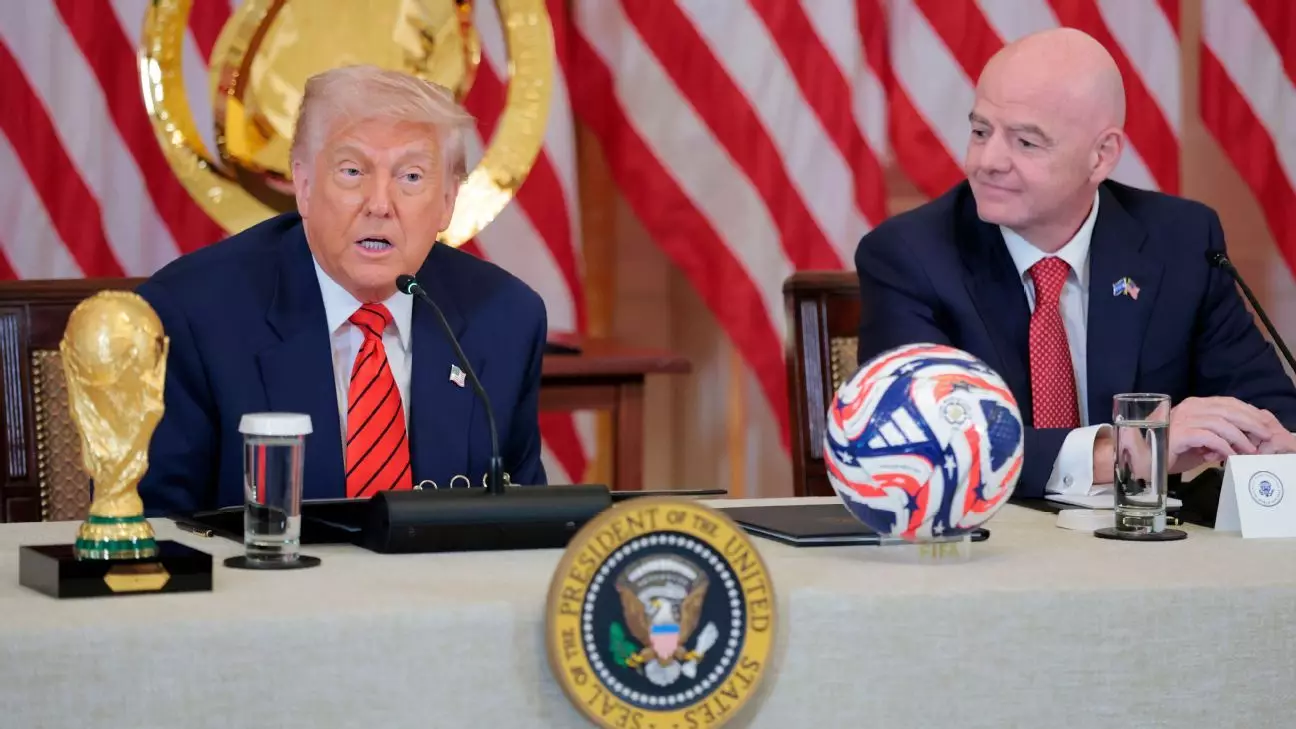In a striking statement, former President Donald Trump recently suggested that the opportunity to compete in the 2026 World Cup could serve as a powerful incentive for Russia to end its ongoing conflict with Ukraine. This perspective, while ambitious, raises significant questions about the role of international sports in geopolitical issues. The World Cup, an event that symbolizes unity and competition, may not solely hinge on athletic aspirations; instead, it is increasingly intertwined with the global political landscape.
The Broader Implications of Sports Exclusion
Russian national teams have remained sidelined from international competitions since 2022, a decision taken by FIFA and UEFA in response to Russia’s military actions in Ukraine. This exclusion not only impacts athletes but also reflects a broader disapproval of the country’s actions on the world stage. Trump’s acknowledgment of this ban, coupled with FIFA President Gianni Infantino’s hope for reinstatement, hints at a willingness to use sports as a means for diplomatic dialogue. However, can we genuinely expect a nation’s military agenda to shift simply for the allure of playing on an international sports platform?
The Futility of Incentives in the Face of HumanCost
While Trump pointed out the staggering loss of life resulting from the conflict—citing figures that illustrate the daily tragedy—his suggestion that sports could facilitate peace seems almost naive. The notion that a football event could serve as a sufficiently motivating factor overlooks the complexities of human suffering and political dynamics. Ending the war is not merely a matter of incentivizing competition; it requires substantial diplomatic effort, addressing deep-rooted grievances, and fostering genuine dialogue between opposing sides.
Missing the Mark on Global Accountability
In the meeting that sparked this debate, Trump seemed unaware of the regulations preventing Russia’s participation, highlighting a concerning disconnect between sports governance and political accountability. If high-profile figures are not fully informed of such essential matters, how can we expect effective, informed dialogue about broader international relations? The implication that sports may offer redemption or reprieve for aggressive actions trivializes the moral implications of international conflicts.
The Intersection of Sports and Politics
Trump’s comments reflect a growing trend where sports are increasingly utilized as a barometer for international relations. While the World Cup may offer a setting for celebration and camaraderie, it is important to recognize that it cannot be a substitute for sincere diplomatic efforts. The powerful symbolism of sporting events should not be misused as a simplification of the complex issues at hand. Rather than framing the situation as an ‘incentive’, perhaps we should focus on fostering peace initiatives that address the core issues plaguing regions in conflict.
While the idea of leveraging sports for peace may seem appealing, the realities of the situation are far more complex. Instead of looking to athletic competition as a means to an end, we must approach international relations with depth, reflection, and a commitment to lasting solutions.

